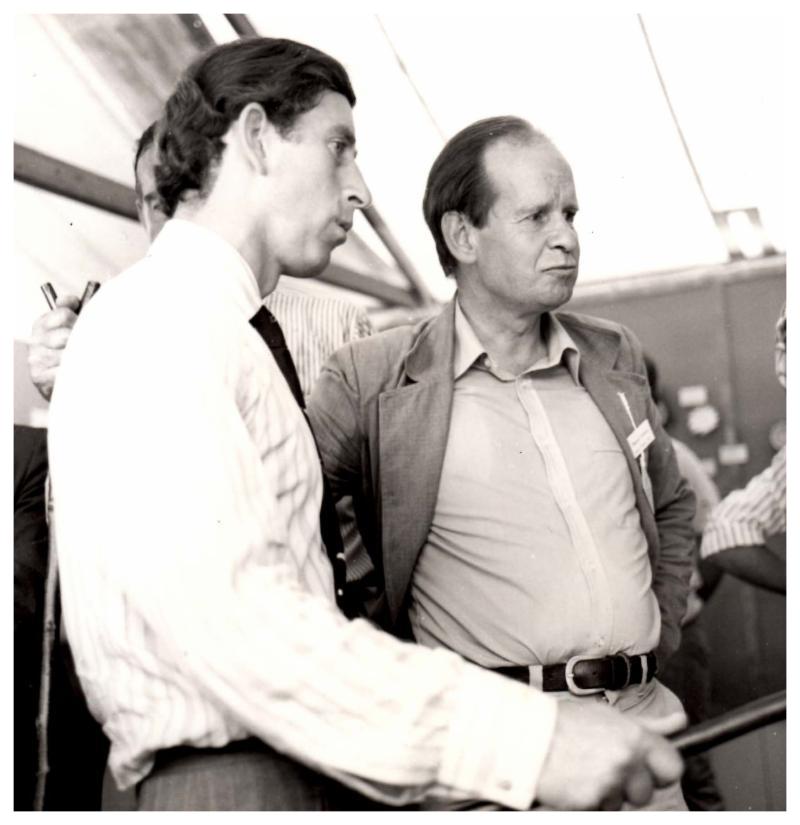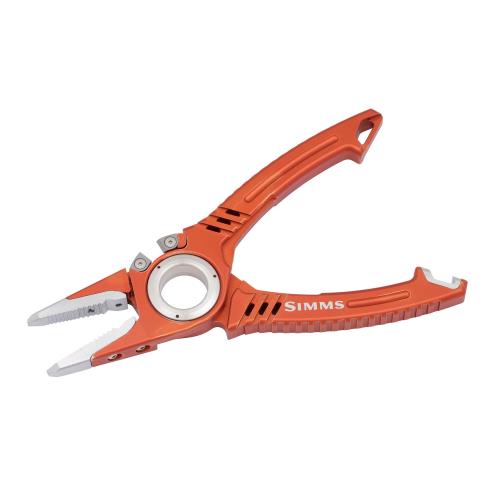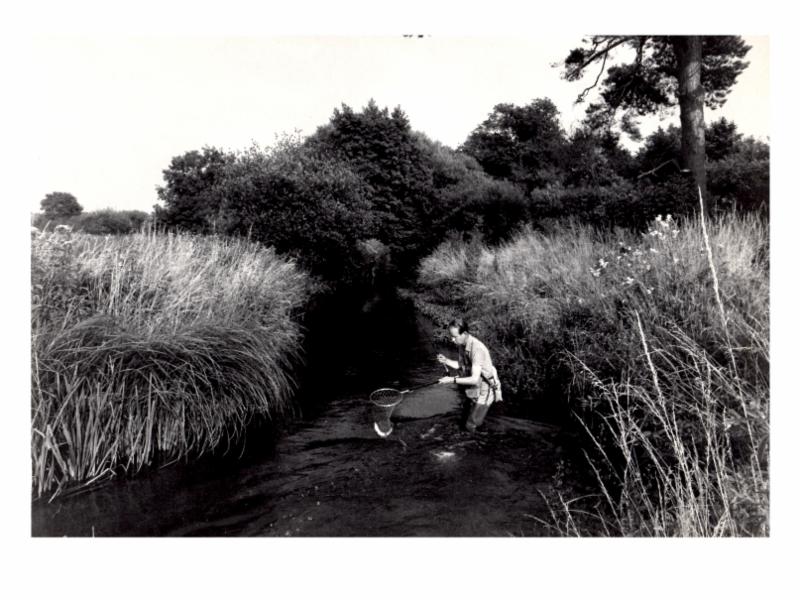You are
sitting at home in your elegant Kensington house one evening. Your spouse
arrives home from work. So far, so normal until the announcement that the time
has come to pack up the London life to head for the country - a fly fishing
business beckons. The details are vague. It might be a store. Or it could be a
hotel. Nothing is precisely determined but the principle is decided. How do you
reply?
 |
|
Dermot Wilson in retirement
|
Well, I guess that might
slightly depend on your circumstances but consider the person standing before
you. He could be in no way considered unsuccessful or prone to flights of
fancy. Educated at Winchester College he left to join the King's Royal Rifle
Corps as an officer at the age seventeen, landing on the northern coast of
France on D-Day plus one earning the Military Cross for his actions behind
enemy lines. After the war he took the Civil Service entry exam, registered the
highest score of his generation, was appointed to the Foreign Office but
declined when he was to be posted to Japan; he doubted that there was much fly
fishing available there. Advertising then called where our embryonic fly
fishing entrepreneur soon rose to become the youngest ever director of the
international colossus J. Walter Thompson. It was from their Mayfair offices that
he had arrived that evening. Now it is to the enormous credit of Renée Wilson
that she looked her husband in the eye and said, "Dermot, that is the most
sensible thing you have said in a long time". And so something unique and
special was born.
By the time the couple
arrived at that life changing moment Dermot already had a head start on others
who might embark on such madness. He was a well known and published fly fisher,
his first (and sadly only) book Fishing The Dry Fly a best seller since
the first edition of 1957 and he was a regular columnist for Trout &
Salmon a position he held dear, rarely writing for any other publication.
He was, I think it is fair to say, a fishing obsessive. His angling career had
started early, his Irish mother shipping him back to her native land for long
summers where he explored the lochs. At Winchester he revived the moribund
fishing club, the River Itchen becoming the thread that ran through the
remainder of his life. Renée relates that even during their courtship weekends
were for fishing; it was fortunate that she always shared Dermot's passion and
that his mother had retired to Winchester.
Like many things in life how
the Wilsons eventually arrived at Nether Wallop Mill was something of
happenchance. After toying and discarding various business models Renée and
Dermot alighted on mail order which was at the time, remember this was the late
1960's, considered slightly down-at-heel. So the search was on for a base and
whilst Dermot was away in Ireland (yes, fishing) Renée spied an advert in The
Daily Telegraph for a dilapidated mill in Hampshire. A call to Dermot and
thence the agent led them to making a full asking price offer that day, sight
unseen. A week later, ahead of two hundred other enquiries, they drove to
Nether Wallop and sealed the deal with a handshake for £13,000.
Whilst writing this article
and researching the fifty years since Dermot and Renée walked across the
threshold of Nether Wallop Mil, now my home and workplace, I have tried to
place him in the pantheon of the angling greats. The names of Walton, Halford,
Skues, Grey, Sawyer and Kite are so easy to recite that perhaps we don't bother
to look much further. But we should for otherwise Wilson will be omitted.
Charles Jardine, one time apprentice to Dermot here at The Mill, has put it
better than any other person I have spoken to: "Dermot should be
remembered as being one of, if not THE, best portrayers of the sport. His words
and English usage were both sublime and minimal."
 |
|
Fergus Wilson (son) with Frank Sawyer at The
Mill
|
As Charles goes on to say if
you want to measure the true worth of a man's literary prowess judge him by the
company that seeks him out to be called his friend. Ted Hughes, Poet Laureate
and often regarded as the greatest poet of the 20th century, was one
such person. Herein lies the secret of Dermot's success for it was through the
medium of the printed word he inspired a whole new generation of fly fishers
and the business he founded was to be the perfect vehicle for that.
Today we very much take
trout stillwaters for granted, but back around the time Dermot was setting up
they were both ground breaking and sensational. The fly fishing 'business'
exploded. Books, TV shows and magazines proliferated as trout lakes were dug
across the country making a sport that was previously thought to be the
preserve of the upper classes accessible to a whole new generation both in
terms of affordability and geography.
Now you might just say
Dermot was lucky with his timing. At this point I tend to grab for Henry Ford's
great truth when accused of the same: the harder I work the luckier I seem to
get. Today mail order, with the internet and next day delivery, is part of the
fabric of our lives, but fifty years ago you needed to truly inspire sceptical
shoppers. For Dermot it was with his words. His catalogue A Choice of Tackle
became a staple of each new fishing season. As a regular traveller to North
America, the powerhouse of post-war era angling innovation, he returned with
exciting new lines, reels, rods and flies. But that in itself was not enough.
You need to make it all come
alive on the page. Explain to the reader how and why the purchase would make
your fishing not only better, but also more fun. In both he excelled. Who else
would have featured a fishing chimpanzee? Added humour with cartoons? Weave the
stories of how he had discovered or used this or that 'must have' item. When
you bought from Dermot Wilson you became part of his extended fishing family;
he invented the concept of customer service long before the term became common
parlance. Nothing was too much trouble. Call, write or even drop in. 100%
customer satisfaction was the aim or return the item no questions asked. Today
we think of all that as standard but back then? Well, perhaps within that laid
the seeds of demise.
 |
|
Prince Charles & Dermot Wilson at 1980
Game Fair
|
It is an eternal sadness to
me that I never visited The Mill in Dermot and Renée's time for it seems to me
it was, for a while, the epicentre of the fly fishing universe. Frank Sawyer
was a good friend and regular visitor; he even designed the most perfect trout
teaching lake which we still use today. Dick Walker, for many years the British
carp record holder and rod maker par excellence through his Bruce & Walker
partnership, was a confidante. Bob Church, Brian Clarke, John Goddard, Barry
Welham and Conran Voss Bark, great men in their own right, were just part of
the fabric. Royal warrant holders Hardy Bros. beat a path to his door when they
needed advice on building a special edition cane rod and the Royal household called
in search of a reel for the Queen Mother's 70th. From overseas came
the Perkins, the owners of Orvis who were to eventually buy the business, along
with Lee and Joan Wulff, not to mention the great American angling writer Ernie
Schwiebert. Of course, they didn't always come to him - occasionally Dermot had
to go to them, most famously to Prince Charles who put out a special request to
meet him and Renée at the 1980 Game Fair when it was held in the grounds of his
uncle's house on the River Test at Broadlands in Hampshire.
Unfortunately the smiles on
Fisherman's Row on that sunny July day hid some bitter truths. This was no time
to be running a fragile business that relied on optimism and buoyant consumer
confidence. The recession (some would say depression) of 1980-81 was gathering.
Inflation reached 17% and interest rates were higher still. Unemployment
surged. Taxes rose. Dermot and Renée sat down with their advisors to accept the
inevitable. I can't better the words Dermot penned in the supplement to the
1981 Choice of Tackle:
 |
|
Farewell edition of A Choice of Tackle
|
"We suppose all good
things must come to an end - and that includes our small enterprise at Nether
Wallop Mill. We're retiring. This is partly because it's high time - we're
getting rather grey-haired and venerable. And it's partly because this
miserable old Depression isn't doing the Mill any good at all. Financially,
that is. So this is our last fond message to you. We'll be winding up as from
September 2nd 1981.
But we want to finish on a
high note. So before we leave the stage, we're making the offers contained in
this leaflet. Not that it's purely altruism. Obviously we'd like to convert
some of our stock to lovely money. We can, however, do each other a final favour
- let us send you a bargain or two.
We simply can't depart from
the scene, however, without saying how much we love you. If anyone doubted that
flyfishermen are the salt of the earth, you've laid those doubts to rest.
You've been kind and courteous and wonderful to us. (We've tried to
reciprocate). Many of you have been with us since the early days; many of you
have become close personal friends. We think you're the nicest people ever.
With all our hearts, we wish you a long life of happy and successful
fishing."
And Dermot did indeed
retire. He and Renée bought a cottage in the village of Farley, not far from
Nether Wallop with views over the Avon valley. Dermot continued to write,
largely for Trout & Salmon,
toured the USA lecturing and as Chairman of the Anglers Co-operative
Association (now Fish Legal) led a successful campaign against a clause in a
government bill that would have weakened the common law protection of the flow
and quality of rivers. He continued to fish both on the Piscatorial Society
waters and his beloved River Itchen until his death in 1996.
His widow Renée still lives
in Wiltshire, now on the banks of the River Ebble. I am indebted to her for
many kindnesses in helping me write this article and I am looking forward to
welcoming her back to The Mill later in the year to unveil the blue plaque I
have commissioned in Dermot's memory. It is the very least I can do for Dermot
Wilson MC, soldier, writer and fly fisherman deserves to be remembered for a
very long time to come.
Simon Cooper, founder of
Fishing Breaks, has lived in Nether Wallop Mill since 1999, which is both his
home and workplace
. My thanks to Trout &
Salmon for allowing the reproduction of this article that was first published
in the July 2018 magazine.
Bursaries: spread the word
News of two bursaries: do spread the word.
The first award is from the Test & Itchen Association of a
Bursary of up to £1,000 to a Hampshire river keeper. The aim of the Bursary is
to help a river keeper improve their river management skills.
The Bursary
might be used in any way to enhance the keeper's relevant skills, knowledge or
experience. Examples might include part-time study, training for qualifications
and visits to other fisheries in the UK or abroad, or a combination of these or
different elements.
To be eligible
for the Bursary, the applicant must be an active river keeper on the Test,
Itchen or Meon or one of their tributaries. The keeper might act in a full-time
or part-time capacity, and be paid or a volunteer.
For an
application form and more details contact Jeremy Legge. The closing date for
applications is Tuesday 31 July 2018. director@testanditchen.co.uk
The
other is the Anne Voss-Bark Memorial Award. Set up by Salmon & Trout
Conservation in collaboration with the Arundel Arms and Fario Club, the Anne
Voss-Bark Memorial Award 2018 offers students:
*
One week work experience with the West Country Rivers Trust; learning catchment
management and water science from the Trusts eminent scientists
*
Two day fly fishing course
*
Complimentary stay at the Arundell Arms hotel during the work experience
*
£250
You can find out
further details and how to apply by following this link.
 June feedback draw winner
June feedback draw winner
I must confess that June rather left us scratching our collective
heads.
On the last
Thursday in June, at that point the hottest Hampshire day of the year, we
hosted two groups on two quite different beats. At the end of the day the
returns were colossal: better indeed than some Mayfly days. As we sat in the
pub slaking our thirsts there was no explanation on which we could agree.
Though we did conclude that the heat was worse for us than the fish.
Well done to Tim
Amps who collects the snood having fished on the River Dove with Andy Buckley.
As for you all, you are back into the draw for the end of season Simms pliers.
Quiz
More
chances to prove, or improve, your intellect. Answers, as ever, at the
bottom of the page.
1) Dermot Wilson
(pictured below) is fishing which Fishing Breaks beat?

2) If you were
scared of today what would you be?
3) How high and
wide is a football (soccer) goal?
Enjoy the weekend.
Best wishes,
Simon Cooper simon@fishingbreaks.co.uk
Founder & Managing Director
Quiz answers:
1) Beat 1 at Bullington Manor.
Date unknown.
2) A triskaidekaphobic. A person who fears or avoids
the number 13.
3) 8x8. Eight yards wide.
Eight foot high.

No comments:
Post a Comment